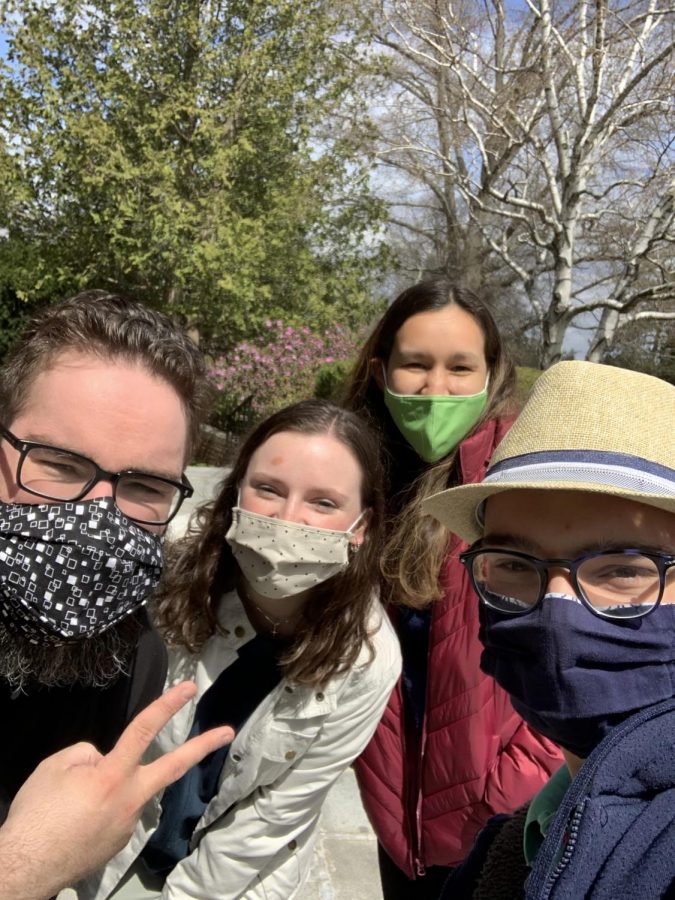The dangers of RSV and its impact on campus life
Another option for masks- Fr. Francis, Siobhan Salani, Tom Canuel, and Angel Ho in spring 2021
September 24, 2021
RSV (respiratory syncytial virus) is spreading rapidly amongst Saint Anselm College students and faculty. RSV symptoms mimic COVID-19 symptoms. Campus health officials are worried about the upcoming flu season.
RSV is a respiratory virus that infects a person’s lungs and causes cold-like symptoms in adults but can be fatal in infants. It spreads like COVID-19 through airborne droplets, direct contact, or by touching a contaminated surface and then touching your face. The symptoms of RSV mimic that of COVID-19 and have considerable overlap with Strep throat symptoms.
Many students have been infected with RSV and some professors are exhibiting symptoms as well. This is potentially dangerous for faculty and staff who have small children at home.
According to the CDC, “each year in the United States, an estimated 58,000 children younger than 5 years old are hospitalized due to RSV infection.”
Aside from professors requiring masks to protect unvaccinated family members from COVID19, the danger RSV poses is yet another factor that professors should take into consideration when evaluating health safety protocols in the classroom.
The way RSV has spread so quickly through campus is worrisome to college health officials about the potential spread of the flu. According to Maura Marshall, the Director of Health Services at Saint Anselm, cases of the flu were almost nonexistent last year. This was largely due to masks and handwashing. With many of the restrictions on campus being lifted, students are no longer required to wear masks and are able to visit each other’s dorms. This provides greater opportunities for the viruses to spread and means cases are no longer as isolated.
Marshall said in an email, “We have seen 178 students at Health Services for upper respiratory symptoms.” Marshall continued saying, “There have been 3 cases of strep throat diagnosed. Even though this does not constitute an ‘outbreak’ as rumored, it is important for students to continue to be tested for COVID, Strep and Influenza so that we can identify an outbreak when/if it occurs.”
Common symptoms of RSV include a runny nose, coughing, sneezing, and a fever. Due to the similarities in symptoms between the two viruses, students are encouraged to get tested and wear a mask if they exhibit any symptoms.



